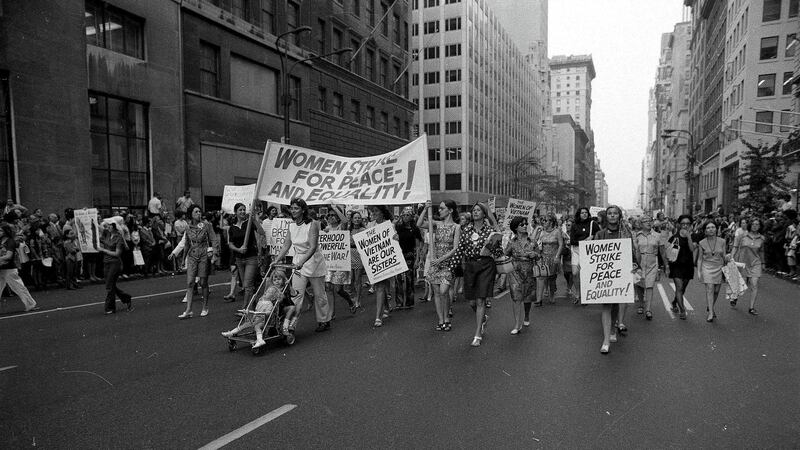Rooted Empowerment: India’s Path Beyond Performative Feminism

Unmasking toxic trends: How India can return feminism to its core values of dignity and respect.
Feminism, at its core, aims to achieve social, political, and economic equality for all genders. However, if we look at its current projection across Indian pop culture and social media, it’s evident that the movement has strayed far from its original goals. Instead of genuine empowerment, we often see entitlement, selective outrage, and toxic narratives that do more harm than good especially in the Indian context.
Normalization of Toxic Behaviour in Indian Pop Culture
Mainstream Indian cinema and OTT platforms increasingly glorify female characters who cheat, manipulate, and make impulsive decisions all under the banner of liberation.
Films like Dear Zindagi, Jee Karda, Lipstick Under My Burkha, and Thank You for Coming often depict cheating, deception, and promiscuity as empowering choices.
Meanwhile, male characters with similar traits are called “playboys” or “toxic,” creating a glaring double standard. This one-sided narrative confuses irresponsibility with strength and sets unhealthy examples for youth.
Who Gets to Be Called a Feminist?
Modern feminist discourse in India often promotes a rigid, urban-centric image of a “real feminist” one who drinks, parties, shuns tradition, and criticizes cultural practices like Karva Chauth or wearing a saree.
Female leaders like Sudha Murthy, President Droupadi Murmu, and Nirmala Sitharaman rarely feature as feminist role models even though they genuinely uplift millions of women.
Italian PM Giorgia Meloni, a self-made conservative leader, is ignored by mainstream feminists simply because her views do not align with their political ideology.
This selective recognition alienates countless Indian women who embrace tradition, religion, and family making them feel feminism has no place for them.
Shakti Bhavans: A Real Empowerment Model
At the same time, India is also witnessing ground-level empowerment movements like the establishment of Shakti Bhavans dedicated centers for women’s safety, support, and skill development.
Shakti Bhavans offer legal aid, healthcare access, skill training, entrepreneurship guidance, and trauma counseling, especially for rural and vulnerable women.
These centers focus on real, practical empowerment rooted in the local culture helping women build self-reliance without having to reject their traditions or community. Such initiatives highlight what true feminism should aim for: progress grounded in reality, not empty rhetoric or provocative social media trends.
Bollywood’s Role in Promoting Toxicity
Despite these real-world initiatives, mainstream Bollywood often celebrates harmful trends:
Movies like Jee Karda, Made in Heaven, and Four More Shots glorify deception and infidelity, portraying emotionally immature decisions as liberating.
A Times of India survey revealed that 40% of Indian wives have extramarital affairs, often justified as self-care or empowerment a troubling norm when society already struggles with stable relationships and mental health. When Bollywood sells such stories as feminism, it normalizes chaos over commitment, especially for impressionable youth.
Disconnect Between Pop-Feminism and Ground Reality
Urban elite movements like “Free the Nipple,” “Burn the Bra,” or mocking Karva Chauth offer little resonance for most Indian women who want better education, financial independence, and personal safety goals supported by initiatives like Shakti Bhavans across rural India.
Oxfam India’s research found that rural audiences often emulate harmful cinematic tropes, creating confusion about what real empowerment looks like.
What most women want is opportunity, dignity, and respect not exhibitionism or Westernized rebellion.
When Feminism Becomes a Weapon
Some have weaponized feminism for personal gain:
False dowry, molestation, and harassment cases under IPC 498A and 375 have damaged lives and reputations. Toxic feminism in India promotes the dangerous idea that all accusations must be accepted without scrutiny making it harder for genuine victims to get justice.
True empowerment is balanced and fair, not fueled by vengeance.
Evolution of Feminism and What’s Missing Now
To appreciate what true feminism is, let’s recall its waves:
- First Wave (19th century) voting rights and legal recognition
- Second Wave (1960s–70s) workplace and reproductive rights
- Third Wave (1990s) intersectionality and sex-positivity
- Fourth Wave (post-2010) sexual abuse awareness and pay parity
But today in India, this Fourth Wave often emphasizes spectacle over substance ignoring real solutions like Shakti Bhavans, which offer grounded and responsible empowerment.
Pay Parity and Market Forces
We often hear superficial arguments about equal pay, especially in entertainment.
Star power and audience draw dictate pay, not gender and this is an economic reality across professions.
Real change lies in creating avenues for more women in leadership, production, and entrepreneurship not simply rhetoric about pay.
Initiatives like Shakti Bhavans show how true empowerment grows from opportunity, skill, and education not slogans.
A Feminism That India Truly Needs
The real feminism India deserves must be:
- Inclusive embracing tradition, family, and diverse beliefs
- Responsible championing honesty, integrity, and mutual respect
- Authentic rooted in Indian culture and driven by initiatives like Shakti Bhavans
- Balanced protecting rights without silencing those who disagree
Conclusion: Reclaiming Feminism’s True Meaning
Modern Indian feminism must move beyond performative outrage and selective agendas.
When it supports grassroots initiatives like Shakti Bhavans, respects women who choose traditional paths, and demands responsibility alongside freedom, it can truly make a difference.
That’s the kind of balanced, dignified empowerment that will build a better, stronger India for all.